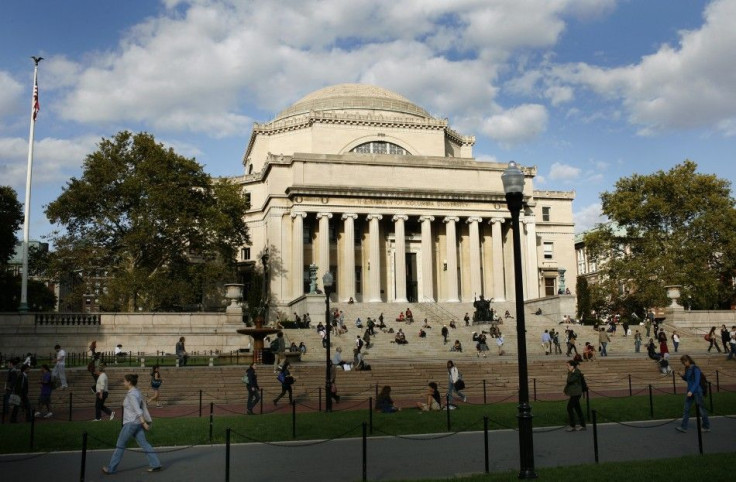Whites-Only Scholarship: Columbia University Files Affidavit To Change Lydia C. Roberts Fellowship

Columbia University is attempting to alter a scholarship that can be offered only to Caucasians from Iowa.
The “whites-only” scholarship, officially titled the “Lydia C. Roberts graduate and traveling fellowship,” has been offered by Columbia since 1920. However, the Ivy League institution filed an affidavit with Manhattan’s Supreme Court to change the grant, citing its “impossible” limitations, the New York Daily News reports.
"Circumstances have so changed from the time when the Trust was established,” making it “impossible” to comply with the scholarship’s requirements, according to the affidavit. "Columbia University is now prohibited by law and University policy from discriminating on the basis of race."
The scholarship was originally instituted by Lydia C. Chamberlain, a Manhattan transplant by way of Des Moines, Iowa. Chamberlain donated her $500,000 estate to create the grant some time before passing away in 1920. According to The Lookout, a Yahoo! News blog, the fund is now administrated by JPMorgan Chase but has not been awarded since 1997.
In its current incarnation, the “whites-only” scholarship contains several prohibitive clauses: Only white men and women hailing from Iowa are eligible for the grant. In addition, potential recipients are not allowed to study law, medicine, dentistry, veterinary surgery or theology, and they must move back to Iowa for at least two years after graduating, the Daily News reports.
While the whites-only stipulation may violate standing laws, the fund, which has increased to $800,000, cannot be altered without a court order, the New York Post notes.
According to the Post, the NAACP questioned the “whites-only” clause as far back as 1949, but the presiding provost at the time, Grayson L. Kirk, defended the measure.
“We do not feel we are justified in depriving some of our students of the benefits of restricted grants simply because they are not available to everyone,” he said, according to the Post.
When the scholarship was last offered, in 1997, it amounted to $22,000 per year, last than half of a full year’s tuition, the Daily News reports.
© Copyright IBTimes 2024. All rights reserved.












